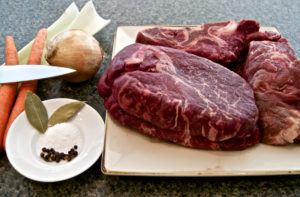The Power of Nutrition: Understanding Diets, Health Benefits of Foods, and Healthy Recipes
The power of food goes beyond satisfying hunger – it fuels our bodies, nourishes our cells, and can help prevent and manage various health conditions.

Diets and Health Benefits
The power of food goes beyond satisfying hunger – it fuels our bodies, nourishes our cells, and can help prevent and manage various health conditions. This article explores different types of diets, the health benefits of various foods, and provides recipes for wholesome meals that pack a nutritional punch.
Types of Diets
The world of diets can be a confusing landscape to navigate with a myriad of options, each promising its unique benefits. Here are a few popular ones:
- Mediterranean Diet: Based on the traditional foods of countries surrounding the Mediterranean Sea, this diet is rich in fruits, vegetables, whole grains, legumes, and olive oil. It emphasizes lean sources of protein like fish and poultry and encourages moderate consumption of dairy and red wine.
- Plant-Based Diets: These diets focus on foods primarily from plants. They include not only fruits and vegetables, but also nuts, seeds, oils, whole grains, legumes, and beans. It doesn’t mean that you are vegetarian or vegan and never eat meat or dairy; rather, you’re proportionately choosing more of your foods from plant sources.
- Ketogenic Diet: A ketogenic or keto diet is low in carbohydrates and high in fats. The goal is to get your body into a metabolic state known as ketosis, where it burns fat for fuel instead of carbohydrates.
- Intermittent Fasting: This isn’t a diet in the traditional sense but rather an eating pattern that cycles between periods of fasting and eating.
Health Benefits of Foods
The journey to better health can begin at the end of your fork with nutrient-dense, healthful foods.
- Berries: Packed with antioxidants, fiber, and vitamins, berries can help improve your health, protect your skin, and curb inflammation.
- Fish: Rich in omega-3 fatty acids, fish can promote brain health and decrease the risk of heart disease.
- Nuts and Seeds: These tiny powerhouses pack a nutritional punch, providing a good source of plant protein, heart-healthy fats, and fiber.
- Whole Grains: These can reduce the risk of heart disease, type 2 diabetes, obesity, and certain types of cancer.
- Leafy Greens: Low in calories but high in vitamins, leafy greens are a great source of iron, calcium, potassium, and magnesium.
Healthy Recipes
Creating a balanced meal can be simple and delicious. Here are a few ideas:
- Mediterranean Quinoa Salad: A light and refreshing salad, combining quinoa, cucumbers, tomatoes, kalamata olives, red onion, and feta cheese. Drizzle with a tangy vinaigrette made from olive oil, lemon juice, garlic, and dried herbs.
- Baked Salmon with Lemon and Dill: Season a salmon fillet with lemon juice, fresh dill, salt, and pepper. Bake until the fish is cooked through and serve with a side of steamed vegetables or a fresh salad.
- Overnight Chia Pudding: Mix chia seeds with almond milk and a touch of honey. Leave it overnight in the fridge. In the morning, top with your favorite berries and a handful of nuts for a quick and healthy breakfast.
Conclusion
Embarking on the journey of healthy eating is a personal decision and what works for one person might not work for another. It’s about finding what suits your lifestyle, dietary needs, and food preferences. Balanced nutrition, combined with physical activity, is key to a healthy lifestyle. Always consider seeking advice from a healthcare professional or a dietitian when making substantial changes to your diet. Happy eating!











